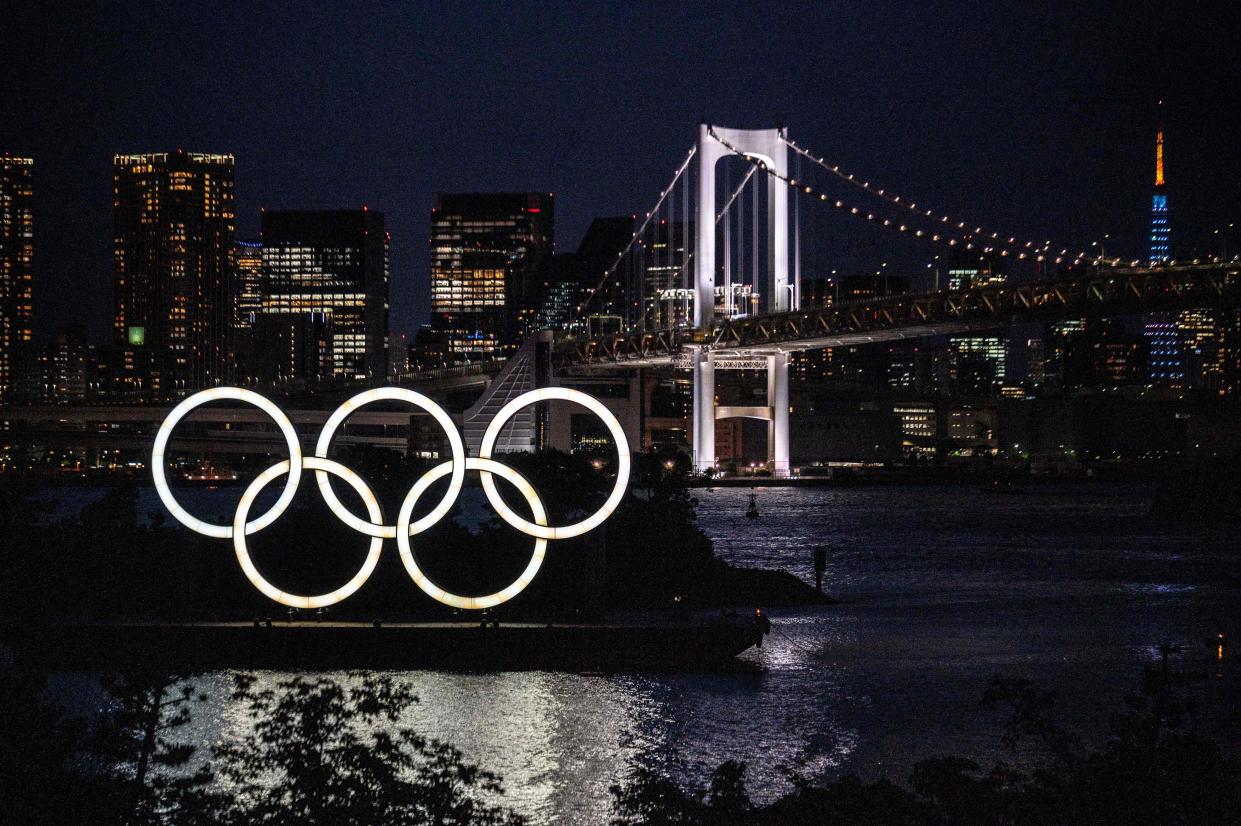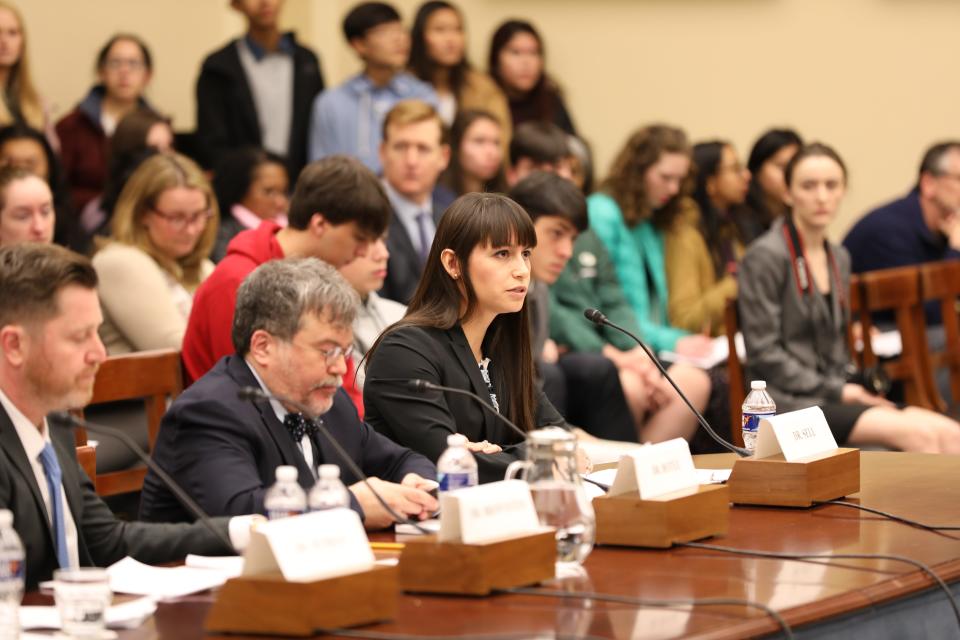2004 medalist: Don't cancel Tokyo Olympics over COVID. We need them and they can be safe.

New doubts swirl about holding the Olympic Games in Tokyo, as Japan, a country with lagging vaccination rates, has only recently entered a downward trend of cases following a devastating surge. Domestic polls have shown a distinct lack of enthusiasm for the Games from Japanese citizens, as well as local medical professionals and volunteers. Many towns set to host training camps have canceled plans.
It is a difficult time to contemplate a mass gathering of athletes (but not spectators) from around the world. Many may say that the Games are not worth the risk. Yet, as we begin to emerge from a terrible pandemic into a world marked by growing nationalism, division and discord, there is an incredible need to embrace the Olympic Spirit of “mutual understanding with a spirit of friendship, solidarity and fair play.”
We know a lot about COVID-19
Nearly every Olympic Games has its own controversy. During the 2004 Athens Games I swam in, there were doubts about if the venues would be ready in time for the Games. In Rio de Janeiro, there were calls to cancel the Games because of Zika, a viral disease spread by mosquitoes. I could go on.
Still, the questions about the rescheduled games in Tokyo require more than getting through the noise and getting on with the Games. Instead, they demand reasoned evaluation and implementation of safety measures and procedures. The Games can be conducted safely, but only with a careful and concerted effort.
Since the Olympic Games were postponed over a year ago, we have learned a lot about COVID-19, about how it spreads, ways to control it and how to test for it effectively. We have also developed and manufactured effective and safe vaccines at a rate unimagined during those early dark days of the pandemic, or even before. To date, a year and a half after the virus first started infecting people, roughly 1.8 billion doses of COVID-19 vaccine have been administered globally.
The Tokyo Olympic Playbook has outlined safety procedures including masking, physical distancing, regular testing, contact tracing and isolation. Additionally, many athletes will have had the chance to get vaccinated. However, plans are only as good as the effectiveness of their implementation, and additional protections may be needed. A successful Olympic Games will rely on athletes, coaches, volunteers and others to commit to these limits and restrictions, many of which have become familiar over the past year.

Some of the bottlenecks that I experienced as an athlete in Athens, and are typical at mass gatherings at this scale, will need to be managed. For example, athletes often must travel to venues packed in buses, which can be delayed for long periods of time. This was a serious problem on one of my competition days. And, such delays, in COVID-19 times, could potentially lead to a number of unintentional close contacts if a case were to occur.
Message to the Class of 2021: Lead us out of COVID and become another greatest generation
Although no one expects mix-ups, delays and snafus to happen, given the critical need to avoid them to protect the health of participants, there must be a specific plan for troubleshooting with the understanding that things can and will go wrong.
Regular testing is a critical safety component to prevent spread of disease. In addition, considerations must be made so that false-positive test results do not limit participation. Planning documents already include efforts to establish testing procedures to confirm initial results, but additional considerations must be made for the potential consequences of waiting for delayed results. Although screening currently includes both antigen and backup PCR testing, such consequential testing efforts should follow drug testing procedures, with all participating athletes having a “B” sample collected at the time of initial sampling.
Put the mass revelry on hold
The social interactions and celebrations that are such an integral part of the games will need to be curtailed in order to protect the people of Japan, its health system, individual athletes, their teams and support staff. Participants will have to skip the spontaneous moments of revelry with the larger athlete population – like I experienced in Athens after the athletes returned from closing ceremonies, headed to the dining hall and started collectively dancing to Greek music. They just won’t be possible this year.
CEO on safe workplace: Why I'm requiring that my employees and customers be vaccinated against COVID-19
While cases may occur, we know from the successes (and the failures) over that past year that these interventions work. Mass gatherings are occurring more frequently and were even possible in some locations, with careful planning, even before vaccines were available. Canceling is not the only way to manage risk. We now have the tools and experience needed to carefully manage a healthy Olympic Games.
The need for these Olympics has never been greater. The Olympic Games bring us more than collective celebration and competitive spectacle. They highlight a shared global experience which inspires people of all ages, ability and life circumstance. This year the Games will serve another purpose as well –as a beacon of hope that we are emerging from this pandemic and a signal of brighter days ahead.
Tara Kirk Sell, Ph.D., broke the world record in the 100 breaststroke (Short Course Meters) in 2004 and earned a silver medal at the 2004 Olympics in Athens. A senior scholar at the Johns Hopkins Center for Health Security and an assistant professor in the Department of Environmental Health and Engineering at the Johns Hopkins Bloomberg School of Public Health, she has worked on pandemic preparedness and response for over a decade. Follow her on Twitter: @skirkell
You can read diverse opinions from our Board of Contributors and other writers on the Opinion front page, on Twitter @usatodayopinion and in our daily Opinion newsletter. To respond to a column, submit a comment to letters@usatoday.com.
This article originally appeared on USA TODAY: Tokyo Olympics can be safe as COVID fades: Health expert & 2004 medalist

